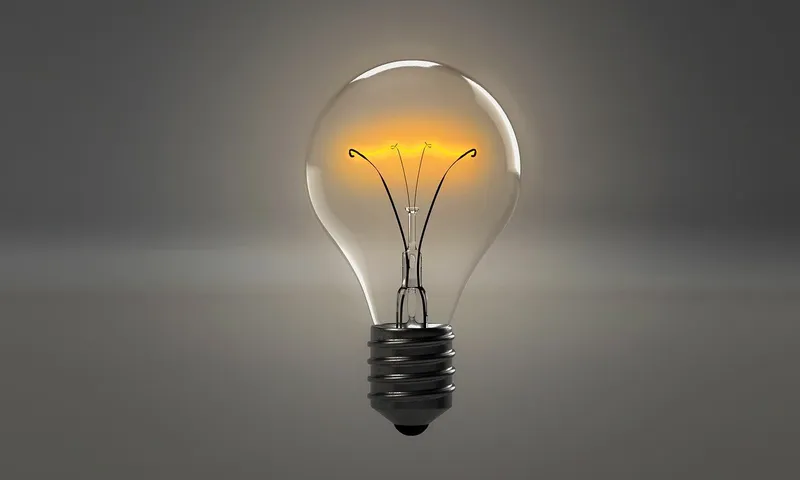How to Buy Anything You Want
Posted on 23 July, 2022 by MIRANDA BOTTAS in Finance

Learn How To Buy Anything You Want. All It Takes Is Some Knowledge and Understanding.
As you already know, there are many things that we need in life... And then there are those things that we want. We often (and very easily) seem to confuse the two. This happens not only to us as individuals but to the general population at a societal level as well. It's very common to find ourselves interpreting something we want as something we feel we truly need, and it can be a hard habit to break. Since it's at least partially the result of culture, lifestyle and everyday interactions, recognizing that a thing/place/person/object is a desire and not a necessity can prove to be extremely difficult... when we understand and practice this, we go against the grain of everything our mind perceives to be normal - and are therefore exiting our comfort zone. In the end, however, the results can be incredible.
Rrecognizing this difficulty that we suffer and acquiring the ability to discern between the two (wants and needs) is a very valuable trait. It's a key habit that will aid you not only in making better decisions and enjoying a higher level of financial wealth, but also in achieving a higher level of overall success in the long-term.
So what exactly do wants and needs have to do with being able to buy anything you set your eyes on? Everything.
The Ability to Recognize Financial Habits and Use Proper Discernment
One of most important things you must learn in order to buy anything you want is that your financial habits determine your ability to make healthy decisions for the future.

For example, if you live paycheck to paycheck your decisions must be extremely precise and calculated if you intend to exit that cycle. Debt accrues quickly, and once you're in a situation where your income cannot cover your expenses, it can be nearly impossible to escape. This is how businesses fail, how people lose their homes and assets, how families fall apart, and worse. If you had only been able implement better financial habits, chances are you'd have avoided living paycheck to paycheck in the first place. Of course, while the unexpected can always happen - such as a personal injury, job loss, natural disaster, economic change, etc. - you should always be prepared for the unexpected. Being prepared is a powerful financial habit that can make an enormous difference in the outcome of any negative situation.
It should be noted that while many are born into or dispositioned by external catalysts into poverty or financial hardship, nobody lacks the ability to learn. In fact, it's never too late to improve your financial situation regardless of what it may be, or the reasoning behind it.
So how do we make better financial decisions? How do we prepare for the unexpected? How do we exit the cycle of living week to week and barely making ends meet? By using proper discernment.
Now, for starters, not everyone has the ability to use discernment properly. In fact it's probably safe to say that the vast majority of us are bad, or at least less-than-great when it comes to our ability to make intelligent decisions. This is especially true for the decisions that will have a positive effect in the long term. Our actions and decisions as human beings in today's society are based more on our emotions than any other factor. Logic and common sense are thrown out the window as if they're not even an option, and this itself is a great feat to overcome. Learning to identify and correct this behavior is without a doubt the golden ticket to a better future.
While recognizing bad finacial habits can be easy, implementing positive, strong, healthy, and beneficial habits can be a much more daunting task. Let's take a look at some of the most common bad financial habits.
Purchasing Things We Cannot Afford
While we may have enough cash or credit to buy a $900 phone or a $2,300 TV, can we really afford it? How does it fit into our monthly expenses? What's the positive logical value of the $900 phone over a $200 phone, or a $2,300 television compared to a $300 used TV of the same size and capability? I know, I know.... The more expensive one is better. But is the more expensive one a want or a need?
This is where our bad judgement comes into play. We feel like we need the $900 phone and can't settle for a $200 phone. We feel that the $2,300 TV in the brand new box with it's measly 1-year warranty is somehow a better decision than a cheaper model, or purchasing used. But if you don't have $2,300 in cash, or if you can't afford to pay 3 months of rent right now in this very moment then you have no business purchasing a $900 phone or a $2,300 television set.
How to resolve it: We constantly purchase things when the money is available, leaving ourselves immediately broke or indebted afterwards. Keep in mind that neither the phone or the TV are instruments of investment. Before buying, wait a few days. Use logic and ask yourself if you really need that phone, or if it's just a desire. If it's a desire, identify it. Understand that you'll be perfectly fine with a cheaper phone or simply keeping the one you already have. Without constantly spending on what you don't need, that money is still in your savings, or non-existent as a credit card balance.
If you continue this cycle of avoiding things you cannot afford, you'll begin to slowly but surely see positive balances arise from the ashes.
Over-Extending Our Credit
This one is an absolutely massive problem when it comes to discernment and decision making. Especially because credit is such a powerful tool when used wisely.
Using a loan to purchase a home or a vehicle is often the only way it can be accomplished, and it's understandable. Many people do not have the time, ability, or savings habits - nor the income - to make these purchases with cash savings. With that said, even the most wealthy will avoid using their tangible cash whenever possible and instead rely on a loan if for nothing more than to protect their current financial resources.
However, if you're using your credit cards to 90% and 100% of their limits and paying only the monthly minimum payments, you've already cooked up a disaster. And don't even think about using the excuse that it was emergency spending, because we've already explained the importance of being prepared. While this is not intended to be harsh, it is intended to be honest and direct. Over extending your credit usually stems from making purchases you cannot afford. There is a big difference between what your card will allow you to spend, and what you're capable of repaying in a timely manner.
How to resolve it: Pretend your credit cards don't exist. Just because that money is available to you doesn't mean you should use it. Your aunt may loan you $5k, but are you really going to ask her for $5k to take a vacation? Probably not. However, with a credit card we tend to spend. Save it for when you need it, and use credit as a tool for growth rather than debt.
Also, another tip... Let's say your boss gives you a raise. Instead of thinking about how to spend this extra money you'll have each month, pretend that it doesn't even exist and put it towards paying down debts, or deposit it into a savings account. The last thing you should do is rush out and spend your increased salary on an item that will degrade in value like a brand new car that you've wanted, yet don't actually need.
Making Bad Personal Decisions
While you may not think or feel that your personal decisions relate to directly to your finances, that idea couldn't be further from the truth. How so? Really it depends on your lifestyle. There are hundreds of personal decisions and behaviors that can result in poor financial health, and again, it's up to you to use your best judgement to determine the future outcome of any given situation. One wrong decision can put you on the path to never-ending debt and difficulty.
To make things clear, you shouldn't be living in fear or be unable to make a decision due to worrying about the future implications. However, at least inform yourself when possible and don't allow something you want to interfere with everything you may need for years or decades to come.
How to resolve it: Begin thinking ahead. Think of the future and not only in the moment. Live your life fully, but not wrecklessly. Understand that although tomorrow is never guaranteed, a very difficult future is highly probable if your not careful about how you behave, who you interact with, and what kind of life direction you chose. Chose wisely whenever possible and if in doubt, wait it out.
Achieving, Maintaining, and Always Improving Your Credit
Finally, to return to the objective of this article is to begin discussing how you can buy anything you want. And not only how to buy it, but how you can buy it worry-free and with ease. The answer may sound overly simple and quite obvious, but it's credit. Credit is the way to buy anything you want at any given time.
While it may sound contrary to what's been explained above - especially in regards to wants vs. needs - creditas a whole is the single most powerful tool you can use to achieve more wealth.

Yes, it's well understood that credit is debt. However, with great credit management skills and a little bit of understanding you can utilize credit as a method of enrichment rather than allowing it to control you through debt.
For example, even if your income is very average, a lifetime of strong and diverse credit history can allow you to take advantages of opportunities that you'd otherwise never have. No, we're not just speaking about buying an expensive car, a $10,000 wrist watch, or a larger home. These are simple desires that can easily be overcome with logic - especially when you cannot afford them. But using credit to build your wealth and success is a very different story.
What does this mean?
- With excellent credit, you'll find that your bank will not hesitate to lend the money you need to purchase a home that offers an excellent investment potential.
- With excellent credit, you'll be able to acquire a $100k business loan if and when the time is right for you to start your own business.
- With excellent credit, you could become a partner in an already successful business with proven gains simply by injecting money into operations.
- With excellent credit, you can build or purchase your dream home today in an exotic location, then rent it for the 10 years (which could pay the entire loan) until you're ready to make the move and live there permanently.
- With excellent credit, you can afford to pay for higher education for your children or grandchildren.
- With excellent credit, you can use your credit card to make large purchases that will earn you hundreds or thousands of dollars in points, then pay the balance of the card in full - meaning no interest fees and actually earning cash while making a purchase that was already inevitable
- With excellent credit, above all, you can rest easy knowing that whatever may come up is not an issue. You have a large, long, and solid line of open credit that eliminates worries about depleting your savings during an emergency.
These above are all examples of things that you should want and be able to do, and none of them require you to be rich. They require great credit which is only available to those who make the smartest financial decisions and use proper discernment in their purchases.
Buying Anything You Want Begins Today
Yes, cash is king. But if the saying "behind every great man there is a great woman" is true, than credit is surely the queen and should be treated as such.
No matter how much or how little you earn, it's critical to build, maintain, and always try to improve your credit. If you're struggling with bad credit, you can reverse the effects and break the cycle but it will require time and patience. It will also require some revisions to your decision making process and your general lifestyle.
On the other hand, if you already have good credit or even great credit, you've probably used good discernment and decisions to get to that point, and we applaud you. Continuing to educate yourself on the strengths of good credit - including the latest and best practices of how to increase your credit score and achieve higher credit lines - is something you should never lose focus on.
And don’t forget about that part about wants versus needs. Because one day when you really want or need something, it will be readily available to you, which is a good feeling.

PREVIOUS ARTICLE
How to Repair Your Credit After Covid-19
NEXT ARTICLE
How to Make Money Selling AU Tradelines While You Work
